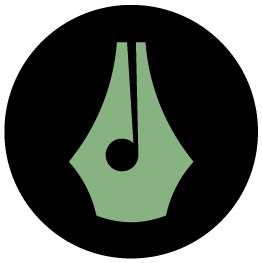XRIJF Day 6 – Wrap Up: Russell Malone, Avishai Cohen, Trio East
- Column, Concert Review, XRIJF
- 30/06/16
I dediced to try and condense my work in a short wrap-up format for yesterday's XRIJF concerts, Russell Malone, Avishai Cohen, and Trio East.

XRIJF Day 6 – Wrap Up: Russell Malone, Avishai Cohen, Trio East
I decided in a day with three interesting shows, I just I would try my hand at this style.
I started my night off with Russell Malone in Kilbourn at 6pm. He just released a new album, “All About Melody,” and his set featured a handful of material from that album, as well as R&B and soul tunes, and some standards as well.
Malone cut his teeth working with Jimmy Smith, the organist who popularized the Hammond B3 in jazz, and the influence was obvious. Malone is also known for playing with vocalists Harry Connick Jr. and Diana Krall. Combining all those influences, Malone has crafted himself into an exceptionally tasteful, melodic, and smooth player. There are so many guitars that play the lead, taking over the whole show. Malone’s style lets everyone work, with open and long solos. It was an incredibly fast hour.
His band consisted of pianist Rick Germanson, drummer Willie Jones III, and very young Julliard product, Luke Sellick. Germanson and Malone were completely on the same page on the whole show; Germanson was adept at taking ideas from Malone and adapting them. Jones III continues the great work from his latest album “Groundwork,” a very accommodating and balanced drummer. I was particularly impressed by his solo development, expanding the use of kit in each solo and throughout the show.
Sellick, however, had some moments. He looked somewhat out of place and nervous throughout the show. As the only one reading, he only had a couple of standout moments, though they were overshadowed by an inexplicable missed entrance during a drum solo.
On the whole, it was an entertaining show, combing a mix of styles, carried by Malone’s charm and musicianship.
The highlight was Malone playing a touching composition to his mentor, Jim Hall.
Next I saw Avishai Cohen 7:15pm at Harro East, the latest in some amazing bassists I’ve seen this year, including Arild Anderson and Christian McBride. Cohen, who is Israeli-born, combines jazz elements with sound-painting and dance themes. His trio had Nitai Hershovits on piano and Daniel Dor on drums.
It’s always a tricky balance when a bassist is a leader in a group. The bass is inherently an instrument that is meant to be supportive, but has lead capability as well. Cohen has mastered forming a group and writing music for him as band leader, combining his impressive lead chops and his ability to incorporate others.
With dazzling technique and his trademarked emotional presence, Cohen was shredding solos up and down the finger board, flashing McBride-speed. The chord changes are throughout the concert, much like many of Cohen’s compositions, are simple, but feature modes and simple but colorful tonality. One of his later pieces incorporated a lot of classical sounds with a bowed melody from Cohen which fit perfectly in the set.
Both Hershovits and Dor are exceptional as well. Hershovits’ ability to play simple and effectively, especially accompanying a bass was a treat, combining single-note rhythms, chords, and babbling arpeggios. Dor combined thoughtful backing to the solos of Cohen and Hershovits, and owned the stage with cookin’ solos, in which he used brushes, sticks, and even his hands.
It was an incredibly fun show, with loud applauses and cheers. The ovations were so loud and long that Cohen came back out, saying “How could I not come back out?” Cohen immediately changed gears and gave two encores, singing Nat King Cole’s “Nature Boy,” and singing and playing a salsa.
With flashes of virtuosity, intelligent composition , and gusto, Cohen was a highlight of the Fest.
I ended the night taking in Trio East at the Little Theater at 9pm. The Eastman faculty group consists of Rich Thompson on drums, Jeff Campbell on bass, and Clay Jenkins on trumpet. The unusual lineup played a lot of unequally quirky and lesser-known tunes from Thelonius Monk and Ornette Coleman.
Playing with this lineup has many quirks. With no “harmonic” instrument, such as a piano or guitar, most of the harmonic information responsibility goes to the bass. Campbell excelled, whether walking, playing a two feel, or groove patterned. I was surprised that Jenkins didn’t employ a similar style that Chet Baker used in Gerry Mulligan’s piano-less quartet, using linear lines to provide harmony, but he and the group made it work.
Thompson, who has big band experience, and seems to be the most fiery in an otherwise very low-key group, kept the engine running, combining activity and taste magnificently for the group. I was singularly impressed by Jenkins’ sound on the trumpet, particularly in the lower end, where he conjured a sound that could make you swear that he switched to a flugelhorn or french horn when you weren’t looking.
They combined unique songs, with many tunes featuring a specific member of the group and a unique lineup, to make an intellectual and smooth treat to end the night.

Leave a comment